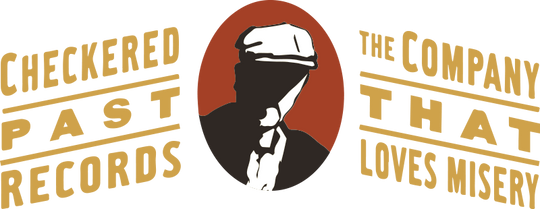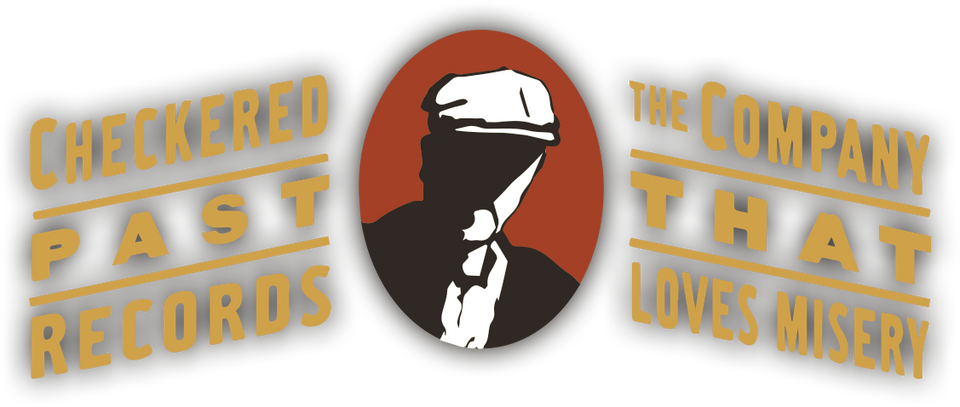Catching Up with John Doe: A Friend of Checkered Past
By Brian Krumm

It’s pretty safe to say that John Doe didn’t tune into the Grammys last month—or any awards shows lately. For Doe, co-founder of the legendary punk band X, “Awards are weird, and competition in art is sort of bizarre. Each record you can make is unique, and to have them compete is just strange, because it’s all so subjective. However, once you get nominated, you want to thank your grandmother. You want to thank your neighbor—and that’s understandable.” So, when Doe was nominated in 2017 for Best Spoken Word Album for his book Under the Big Black Sun, “We got dressed up—sure—we had fun. But we had a great time.”
It’s possible that Doe was just too busy to tune in. He’s currently holed up in Orange County, California, working on songs for a new X album. (In early 2020, X released Alphabetland, its first album in 35 years with all the original members.)
But don’t expect the album to materialize overnight. “It’s a process,” Doe says with a laugh. “It doesn’t matter whether you’re 20 or more, once you have these songs and you start putting them together, there’s always a point at which you go, ‘This is shit! I actually have been fooling myself and I actually can’t write songs.’ But then two days later, it’s like, ‘Ah, I guess it’s not total shit.’”
Doe’s been through the process many times, including writing tunes for X’s album Los Angeles, named in Rolling Stone’s top 500 albums of all time. His most recent solo album, Fables in a Foreign Land came out in 2021. The songs in Fables all take place in a preindustrial time, maybe around 1890, after a young man’s parents are killed. The record follows that man’s experiences and includes “no modern references,” Doe says. The songs are built around acoustic guitar, bass and drums, with Doe singing. Checkered Past is offering Doe’s 2016 solo album, The Westerner, for sale at www.checkeredpast.com.
CPR: Fables in a Foreign Land came out last year. You did quite a few live shows after the record released. What was the reception like?
JD: Nowadays, I think a record is, like the old days, it’s a promotional tool. I wish that records had the same sort of impact that they that they used to, but it really just means you can go on tour and it’s just one more element to get people to come to the show. But I’m not selfish enough to play an entire record’s worth of new material. That’s just pompous and selfish. Because people want to hear X songs and I’m not gonna be so bold and selfish to say, “Well this is my new material, you need to listen to my new shit, man.” I’ve been at those shows and they suck.
CPR: Typically you only have an hour or so to play what you want to play for the people.
JD: Dude, if I could play 45 minutes, I would. Two-hour shows are like, no, I don’t enjoy them. Sorry, Bruce. But you know if you charge people $150 a ticket then you gotta play for 2.5 hours. We’re much more like charge them $30 and play for an hour and 15.
But anyway, we did two kind of full tours. One was cut short by COVID, and we’re doing some makeup dates in June for that. But what was rewarding is that people got into this crazy world that the record was about. So, that’s rewarding—if people get it, then you think, oh I’m not delusional. That’s exciting. It’s good to get a little validation for your scheme.
Moving to Austin six years ago was a great addition to creativity because of all the great players that are there, and maybe it’s a little bit of a monoculture, but that monoculture is willing to step outside of their box. Austin and New Orleans share some similarities in that. You know, New Orleans is all about the New Orleans style of music. Austin is all about honky-tonk—and so is all of Texas, but those kind of players are excited and like a challenge to do more singer-songwriter stuff that has elements of country music. It’s a win, win, win. And that’s what kind of happened on Fables in a Foreign Land.
CPR: Throughout your career, you’ve often worked with collaborators on songwriting. You wrote “Destroying Angels” (from Fables) with Exene Cervenka from X and Shirley Manson from Garbage.
JD: Exene and I got asked to do a tour with Blondie and Garbage and that was a dream. We had just toured with Blondie a few years prior, but I hadn’t really met Shirley Manson and you know, Duke and all the other people in Garbage, but Shirley is very approachable. We were all just hanging out one day and she said we should write a murder ballad. And I was like sure, when you know, Shirley Manson says let’s write a murder ballad, you don’t say, oh no, that’s a terrible idea. Eventually we recorded it with Garbage for a Record Store Day. When I was doing Fables in a Foreign Land, I wanted to reclaim it as more of a traditional folky balance. But it still has all the elements of the original.
CPR: Is there one collaborator over the years that stands out as most memorable?
JD: The best and most favorite is writing 100 or so songs with Exene. That would be probably be my favorite, writing all the songs that I’ve written with her and that I’m writing now, even though it’s sometimes hard to figure out how to make it work.
CPR: Let’s talk about your 2016 solo album, The Westerner. What’s the story behind how that record got started? You started working on that with a friend of yours.
JD: Yes, Michael Blake (author of Dances With Wolves). Unfortunately he was in his final days.
CPR: And you started working with producer Howe Gelb. Do you have memories associated with The Westerner in general and other records that you’ve produced—do they take you back to a specific time?
JD: Yes, and that’s where saying they’re like my children actually makes sense. You remember things like these that are milestones. And I think somewhere around The Westerner, I decided, the records are gonna be real. They’re gonna be recorded live and I’m not gonna listen to sirens who say, well if you did this, you might get famous. I’m just gonna do what I want. And if you do that, then you’re usually not disappointed. Then you have reasonable expectations and you know that you made the best records you could. That’s all you really need is—expressing yourself and answering the question, is it real?
The Westerner was special because I did try to tell a story about my friend and his environment. You know, Tucson is a very unique place in that way. And so the record has a lot of imagery and sounds that reflect that. And I did it with another friend who could facilitate that and bring all that color and wind and sand and space to the sound. Because that’s what Howe does.
So yeah, that was unique. It serves whatever project you’re working on to listen to the parameters of, what’s the heart of this? For The Westerner we asked, what’s your story and how are you gonna tell it the best way? Then you have a chance of coming up with something that is a piece that you’ll remember. And that’s always the plan.

